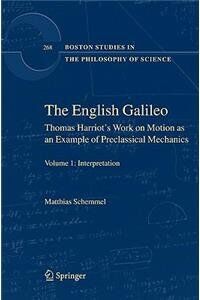Only logged in customers who have purchased this product may leave a review.
Sale!
The English Galileo (Multiple copy pack) | Released: 01 Nov 2008
By: Matthias Schemmel (Author) Publisher: Springer25.00% Off Original price was: ₹ 2,500.00.₹ 1,875.00Current price is: ₹ 1,875.00.
You save ₹ 625.00
The English Galileo–the title of this book draws on the extraordinary prominence of Galileo Galilei in the historiography of the early modern Scienti?c Revolution. At the same time it questions the uniqueness of Galileo (not as a person, of course, but as an early modern phenomenon) by proclaiming another ?gure... Read More
In stock
Ships within 1-2 Business Days
100% Orginal Books
Easy Replacement
Certified product
Secure Checkout
On time delivery
Author:
Matthias Schemmel
Publisher Name:
Springer
Language:
English
Binding:
(Multiple copy pack)
About The Book
The English Galileo--the title of this book draws on the extraordinary prominence of Galileo Galilei in the historiography of the early modern Scienti?c Revolution. At the same time it questions the uniqueness of Galileo (not as a person, of course, but as an early modern phenomenon) by proclaiming another ?gure of his kind: Thomas H- riot. But putting Harriot on a pedestal next to Galileo is not a concern of this book, which is rather motivated by questions of the following kind: How did modern s- ence come about? What were the processes of knowledge and concept transformation that led from premodern to modern science, and, more speci?cally, from preclassical to classical mechanics? Which aspects of these developments rely on the peculiarities of particular historical actors and what aspects re?ect more general characteristics of the knowledge system at the time and its potentials for development? To answer such questions it is obviously necessary to complement the existing studies on Galileo's science with studies on the work of his lesser-known contemporaries; and it is imp- tant that these studies are carried out in similar detail to make the different prota- nists' work comparable. Without such comparison--this is the basic assumption of this book--our understanding of the shared knowledge of early modern thinking and the processes of knowledge transformation from which modern science emerged will remain incomplete and biased.


Reviews
There are no reviews yet.